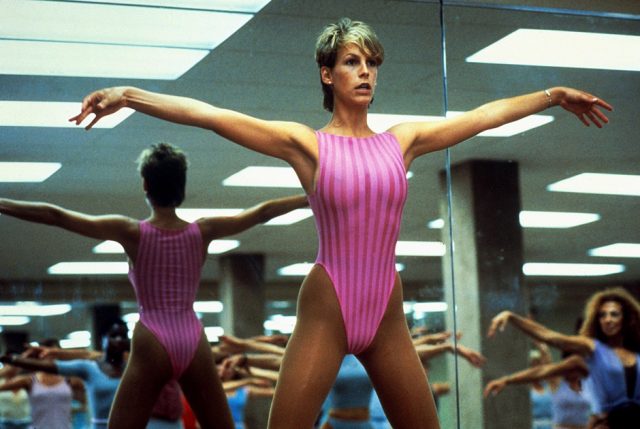
The main mistake after the diet is to eat in the same “pre-diet” mode. Many achieve the desired result and are relieved to think that the figure is no longer in danger, but at this time the weight begins to grow with renewed vigor. How to maintain weight in the right range and not get better after dieting? Nutritionist and clinical psychologist-nutritionist Anna Ivashkevich explains.

Anna Ivashkevich, nutritionist, clinical psychologist and nutritionist
stick to a balanced diet

Nobody talks about a strict diet and giving up your favorite croissant or pizza for the rest of your life. A balanced diet may include fresh vegetables and a glass of red wine. What should go in between is mono diets and fasting. Monitor the ratio of protein, fat and carbohydrates throughout the day. Calculate your daily calorie intake and stick to it.
Replace drinking tea with snacks

It is better to replace tea breaks with snacks – yogurt with fruit, cottage cheese with nuts, vegetable slices from carrots or cucumbers. Such snacks, firstly, will fill you up if you feel hungry, and secondly, they will bring much more benefits, vitamins, micro and macro elements than cookies or chocolate. The phrase “you must finish eating or it will be lost” always adds a kilogram or even more to your weight. Either try to cook one meal at a time or plan the meals of the week.
Follow the drinking regimen

Let’s be honest, not everyone can drink two liters of water a day. Try to start your day with a glass of warm water with lemon and drink 6-7 glasses throughout the day. After a few days you will notice how your condition will change – your working capacity will increase, your skin and hair will improve, and digestion will normalize.
eat more often

It is difficult to get used to it, so it is better to choose the option that is suitable for yourself. It is easier for someone to eat three times a day – breakfast, lunch and dinner. And five: breakfast, lunch, dinner, and two snacks. Portions don’t have to be big, the food itself is important. Be sure to include in your diet:
– turkey and chicken;
– seafood and fish;
– vegetables and fruits, berries and greens (arugula, spinach, parsley);
– pure cottage cheese, cheese, milk and natural yogurts;
– long-cooked cereals (oatmeal, millet, rice);
– nuts (almonds, walnuts, hazelnuts, pine nuts, cashews);
eat slowly and carefully

Biting and snacking while running does not lead to anything good. You are not chewing food thoroughly, and large pieces irritate the esophagus. The digestive process is complex and long, so you need to help your body and chew food as well as possible. In addition, such a conscious approach will make you feel full faster than a running hot dog or cheese puff.
Add physical activity

The activity can be different – someone means 3-4 trips to the gym during the week, others mean plank in the morning. Choose the approach that suits you best. For example, a little exercise in the morning. And if time permits, walk to a farther subway station or walk home after work.
watch your sleep

This point often causes a lot of negativity – “What does it mean to sleep 7 hours? Where can I find all this time? But it is sleep that does more than 80% of the work for our body to function. Try to go to bed before 24:00 and get away from gadgets, news and TV shows at least an hour before bedtime.
Don’t scold yourself for eating a piece of cake.

Try not to keep yourself under constant control. Diet is a restriction, and when we forbid ourselves something, the desire only increases. Hence the distortions. Allow these items from time to time to avoid the constant temptation to indulge in your favorite desserts, sushi, or your favorite pizza.
Check your mental state

Anxiety, stress, bad mood, loneliness – all this often leads to overeating. In order not to catch problems, it is worth understanding them. Ask yourself questions – “how do I feel when I reach for another piece of candy or cookie?” Sweet, fatty or salty foods may relieve the situation for a short time, but you still cannot get away from the real problem.
Learn to listen to your body signals

It is useful to distinguish between the terms “hunger” and “appetite”. When you are hungry, you will eat absolutely everything that is offered to you. Otherwise, drink a glass of water instead. It could be a simple thirst hidden behind a false sense of hunger.
And last, but not least, get regular medical checkups and ask your doctor about the vitamins and minerals that are responsible for the body’s functioning. Perhaps increased appetite is associated with a chromium deficiency, and decreased energy is a result of malfunctioning of the thyroid gland.
Source: People Talk
Elizabeth Cabrera is an author and journalist who writes for The Fashion Vibes. With a talent for staying up-to-date on the latest news and trends, Elizabeth is dedicated to delivering informative and engaging articles that keep readers informed on the latest developments.





